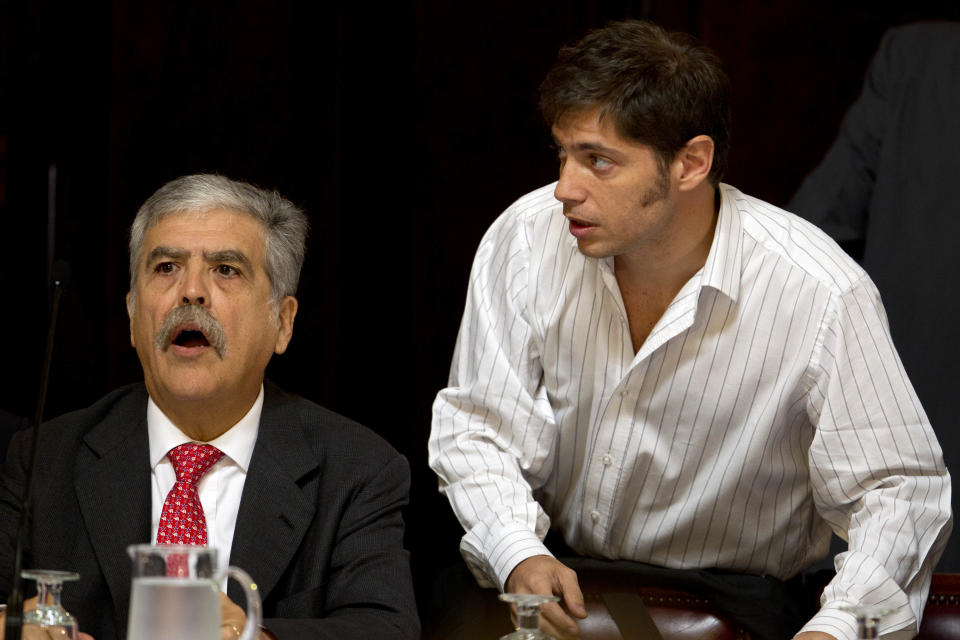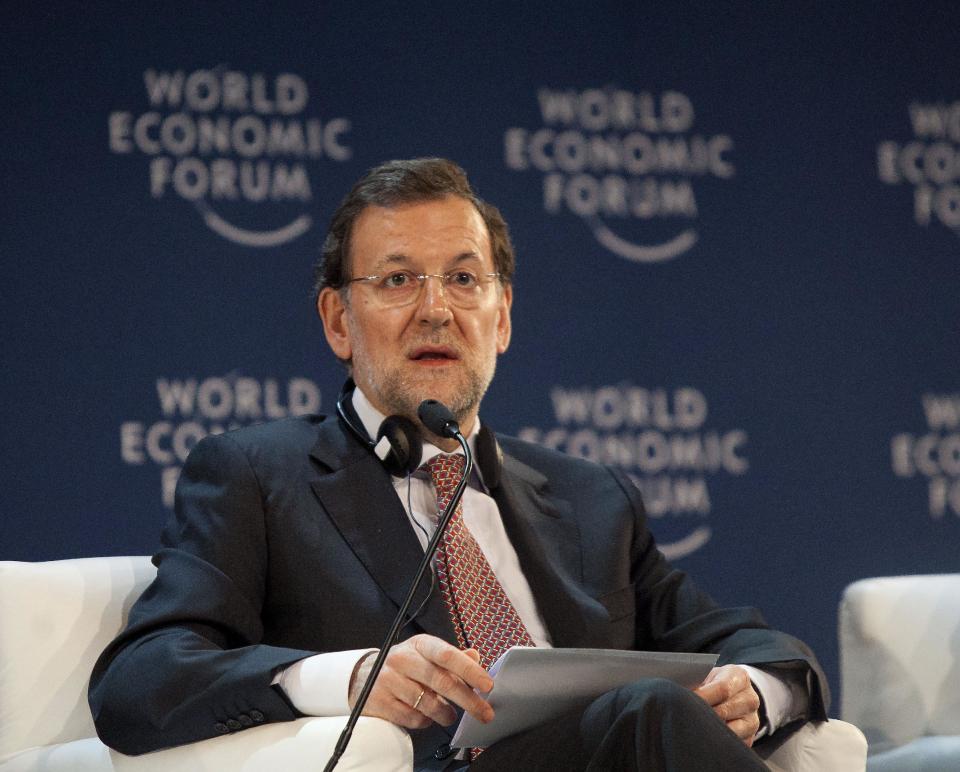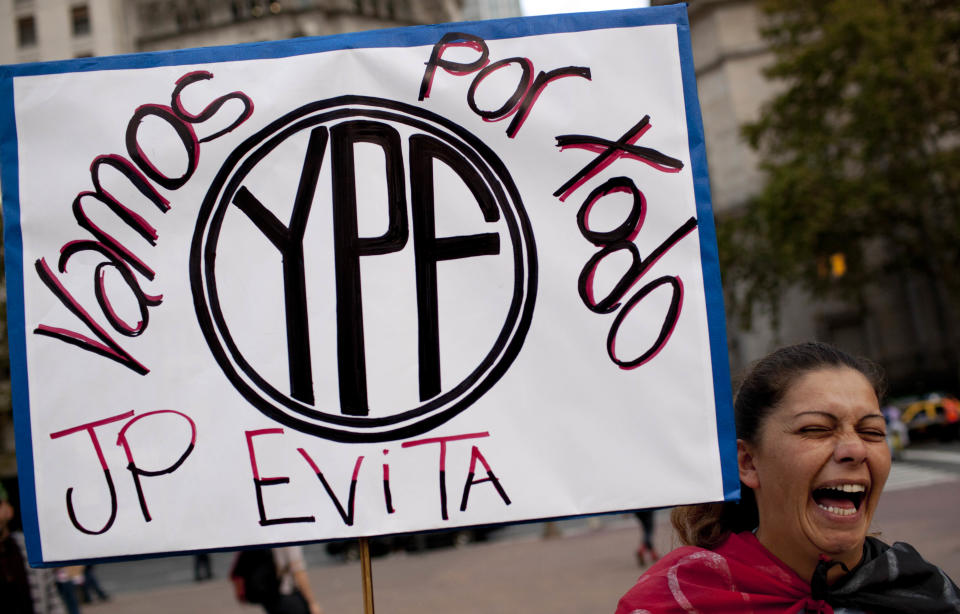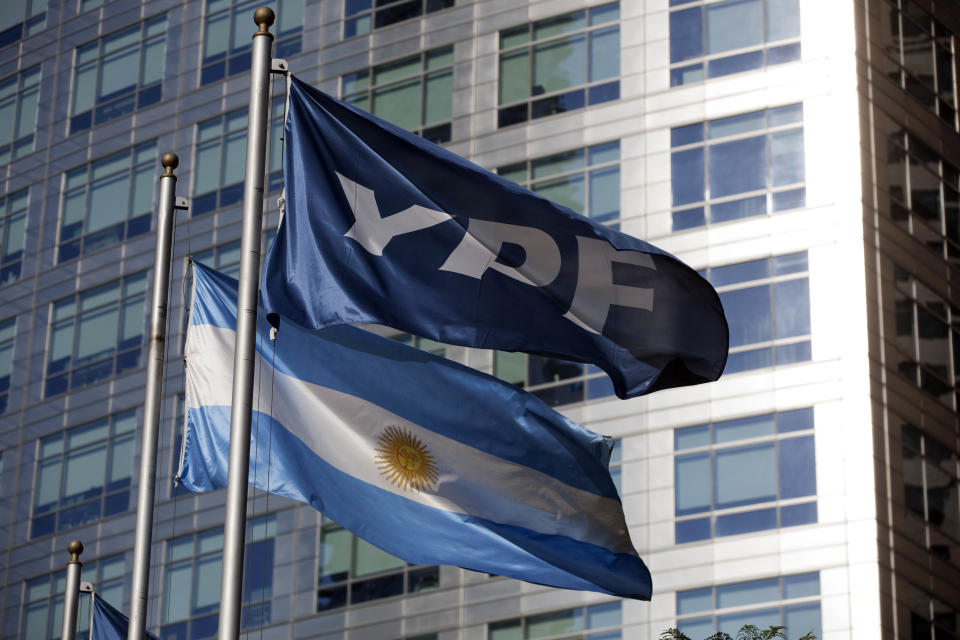Argentina plans inside look at YPF's value
BUENOS AIRES, Argentina (AP) — Argentina accused Spain's Repsol oil company on Tuesday of hiding the true value of its Argentine YPF unit and said a thorough review of its books after seizing control of its offices will affect the compensation paid to its shareholders.
The allegations by Deputy Economy Minister Axel Kicillof came as Spain, Argentina's leading trading partner, denounced the takeover of YPF and warned of potentially damaging retaliation.
Kicillof told Argentina's Senate that the company has major debts to pay, and suggested that environmental cleanup costs could be deducted from whatever the Argentine government pays for Repsol's expropriation. "only from the inside can we know the environmental damage, much of surely has not been published in their balance books."
Repsol estimates that the 51 percent stake in YPF that Argentina is expropriating is worth $10.5 billion. Kicillof cast doubt on that, and said that Repsol will be responsible for any debts and damage it caused while running the company.
"We're going to see where they threw out each cubic meter of contaminated water," he vowed.
Spain's government had warned that Argentina's nationalization of the Spanish-controlled energy company would be seen as an attack on the South American country's leading trading partner, and responded sharply Tuesday to President Cristina Fernandez's announcement that she is making good on the threat.
The move spoils the good relations that had existed between Argentina and Spain, and "greatly affects the international reputation of Argentina," Spanish Prime Minister Mariano Rajoy said at a World Economic Forum meeting in Puerto Vallarta, Mexico.
Fernandez on Monday decreed that Spain-based Repsol's majority stake in YPF is a "public good" and subject to expropriation. She put two of her top political appointees in charge of the company, whose executives were forced to abandon their offices in Buenos Aires. She also asked her majority in Congress to quickly ratify the re-nationalization of YPF, which was state-owned for decades before its privatization in the 1990s.
"No one can say that we're taking away something that was theirs," said Kicillof, a Marxist economist, in Senate debate on the expropriation measure.
Repsol's president, Antonio Brufau, accused Fernandez of trying to quell increasing unrest at home and boost her popularity with the "unlawful" bid, which caused the group's shares to plunge more than 7 percent on Tuesday.
Argentina's move also affects Mexico's state-owned Petroleos Mexicanos, which owns 10 percent of Repsol and is among many shareholders around the world who watched the announcement with dismay.
"I am absolutely convinced that the road to economic growth and development is not the road of expropriations," said Mexican President Felipe Calderon, though his country each year celebrates the 1938 nationalization of its own oil industry.
Spain's government prepared retaliatory measures, the European Commission indefinitely postponed a bilateral trade meeting between the European Union and Argentina, and other countries were considering diplomatic, legal and economic counter-measures.
"This creates an uncertainty which is not helpful to our economic relations and to the economy as a whole," European Commission President Jose Manuel Barroso said.
Fernandez and her ministers have complained that Repsol failed to invest enough in Argentina's energy future, taking profits out of the country in the form of dividends, and exporting too much of Argentina's oil to profit from world prices, rather than supplying price-controlled markets within Argentina.
Brufau said the company is insisting on compensation, saying Fernandez "carried out an unlawful act and made unlawful charges after a campaign aimed at knocking down YPF shares and allowing expropriation at a bargain price."
The decision by Fernandez "is only a way of covering up the social and economic crisis Argentina is facing" amid high inflation and energy prices, Brufau added.
Repsol shares were down 7.1 percent to €16.25 ($21.34) each in afternoon trading in Madrid, far underperforming the benchmark Ibex index, which was up 1 percent. Analysts were concerned that Argentina has not stated any compensation terms for the nationalization of YPF, which has 42 percent of Repsol's global reserves, estimated at 2.1 billion barrels of crude.
Brufau told reporters that YPF is worth $18.3 billion, and he valued Repsol's 57 percent stake in the unit at $10.5 billion. With Argentina taking over Repsol shares representing 51 percent of YPF, Repsol would be left with 6 percent. Other shareholders including a rich Argentine family would not be affected, and other foreign energy companies in Argentina operations were not targeted, he noted.
Kicillof, however, gave other energy companies few reassurances on Tuesday. In his Senate speech, he asserted that all of them need to be subject to state control.
Spain's Justice Minister Alberto Ruiz Gallardon said Argentina's plan to nationalize YPF "represents an extraordinary political error in the medium and long term." He and Energy Minister Jose Manuel Soria suggested that retaliatory measures would be taken within days.
Bilateral accords between Spain and Argentina allow Repsol to take its case to the United Nations and the World Bank. "It will be a long (legal) battle," Brufau warned.
YPF is Argentina's largest company and vital for its energy future, especially after a recent find of huge unconventional oil and natural gas reserves — a discovery that Brufau stressed came from his company's exploration efforts.
But the company has been under intense pressure from Fernandez' government to raise output while its shares have plunged in recent months on fears of possible state intervention.
Argentina this year expects to import more than $10 billion worth of gas and natural liquid gas to address an energy crisis even though it is an oil-producing nation, according to estimates from the hydrocarbon sector.
Spain's government is lining up allies to contest the nationalization and possibly isolate Argentina economically. Rajoy was already finding support during his trip to Mexico. Venezuela, meanwhile, pledged to use all means necessary to support Argentina.
Brufau urged shareholders to join the legal battle, and accused Fernandez of being "an expert manipulator" in her accusations that Repsol underfunded its YPF unit. He said Repsol has invested $20 billion in Argentina since it bought its stake in YPF in 1999.
As Fernandez was announcing the takeover on national television, Argentine authorities went to YPF headquarters in Buenos Aires and expelled Spanish executives. Their "behavior with our managers and employees was pathetic and embarrassing," Brufau said.
Spanish bank and telecommunications companies have a heavy presence in Argentina, where they also have earned strong profits to offset deep losses in recent years at home due to the financial crisis.
Spain's Telefonica SA operates six companies in Argentina, where it is the leading telecom provider, with revenue last year of €3.17 billion, up from €3 billion in 2010, according to its annual report.
The YPF nationalization has made the business climate in Argentina more uncertain for foreign companies, but experts doubted Fernandez would announce nationalizations affecting others.
"There's going to be a lot of mounting pressure on Argentina not to do more of this," said Antonio Moreno, an economics professor at the University of Navarra. "I don't think they're going to be able to go on a nationalization spree."
___
Contributing to this report were Associated Press writers Luis Andres Henao in Buenos Aires; Alan Clendenning, Jorge Sainz and Ciaran Giles in Madrid; Jack Chang in Puerto Vallarta, Mexico; Barry Hatton in Lisbon, Portugal, and Gabriele Steinhauser in Brussels.





